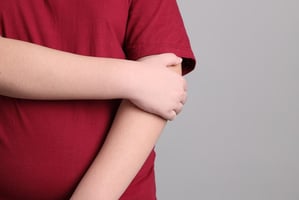Lithium Found Superior to Other Mood Stabilizers in Improving Outcomes in Youth With Bipolar Disorder
 |
These findings are similar to those found in previous studies of adults with bipolar disorder, “showing that lithium might improve mood course (including depressive symptoms), prevent suicide attempts, and ameliorate aggression,” wrote Danella M. Hafeman, M.D., Ph.D., of the University of Pittsburgh and colleagues. “When considering optimal treatment for [bipolar disorder] in youth, these potential benefits should be weighed against the possible risks of long-term lithium exposure (e.g., effects on kidney and thyroid function) and the fact that [lithium] can be lethal in overdose.”
Hafeman and colleagues analyzed longitudinal data collected from the Course and Outcome of Bipolar Youth (COBY) study, which included 413 youth aged 7 to 17 who met criteria for DSM-IV bipolar spectrum disorders. As part of the COBY study, the researchers followed up with youth every six months for four years, tracking the medications they took (the participants reported the medication they took, not what they were prescribed); suicidal ideation and attempts; and fluctuations in mood, anxiety, substance use, and psychosocial function. During follow-ups, parents were asked to fill out a form that asked about the participant’s aggression and other externalizing behaviors.
Hafeman and colleagues relied on data collected from 340 youth during 2,638 follow-ups to assess whether the youth who took lithium differed on these measures compared with those who took antimanic anticonvulsants, first- and second-generation antipsychotics, and/or lamotrigine. The researchers found that youth in the lithium group had half as many suicide attempts, fewer depressive symptoms, less psychosocial impairment, and less aggression than those taking other mood-stabilizing medications.
The researchers acknowledged several limitations of the study, including a lack of information on medication adherence, side effects, and/or tolerability.
“Despite these limitations, the COBY study provides a unique opportunity to assess the effect of medications in a larger sample, with much longer follow-up, and arguably more generalizable to [this] patient population than [a randomized, controlled trial],” Hafeman and colleagues wrote. “Future work should focus on elucidating the mechanisms by which [lithium] improves outcomes in [youth with bipolar disorder], so that novel therapeutics can be developed to target these mechanisms with fewer side effects; and identifying who will best respond to [lithium]…”
For more on the COBY study, see the American Journal of Psychiatry article “Four-Year Longitudinal Course of Children and Adolescents With Bipolar Spectrum Disorders: The Course and Outcome of Bipolar Youth (COBY) Study.”
(Image: iStock/noipornpan)






